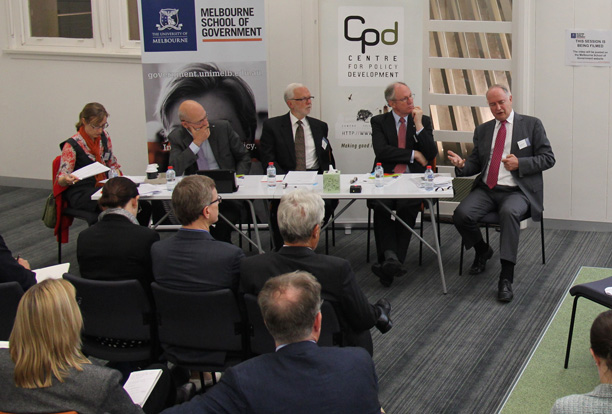Many people expect financial regulatory agencies (regulators) to protect them from unethical actions in the markets. They also expect regulators to take responsibility for financial system stability. Neither of these expectations are within the restricted role of financial regulators. The role of regulators is largely limited to the legalistic oversight of compliance and enforcement of existing regulations. Hence there is a gap between what we think regulators should deliver and what regulators are required to deliver. This gap needs to be identified and appropriately bridged.
Regulators implement legislation and undertake actions and tasks in relation to compliance and enforcement of established rules and regulations. In government bureaucracies, resources are allocated only to those recognized actions and tasks. Hence the scope of what regulators do is largely prescribed and new developments in the financial system will not necessarily trigger corresponding regulatory actions unless preceded by legislative change. The Madoff scam, involving a potential loss of US$50 billion, is a good example.
People should not be surprised by the occurrence of the Madoff scam, if they understood how the regulatory system really works. Harvey Pitt, a former chairman of the SEC, said publicly that he would have acted decisively had he seen the document written by Markopolos, the whistle blower. But such a document might never have got to him, because the system may not have identified its immediate relevance due to the regulatory gap.
A junior staff member is typically the first recipient of a complaint lodged with the regulator. The complaint is recorded administratively and is passed upwards through a multi-layered bureaucracy. The progress of the complaint up the chain of command could easily be stopped for very simple reasons. At each level, the complaint has to be prioritized within existing tasks even if only to decide whether resources need to be diverted to examine the complaint more closely. There is no strong incentive for devoting additional resources to issues which appear to be outside the scope of current work as it might not be recognized and might have an adverse impact on the delivery of already agreed work.
It would have been very easy to dismiss the Markopolos document on Madoff because it dealt with the highly technical subject of derivatives. Most staff might not have had the knowledge or experience to understand the details of the document and may have had to divert substantial resources to understand all the arguments set out in the complaint. Since the complaint related to hedge funds and derivatives which are not explicitly regulated by the system, it would have been easy to assign the complaint a low priority. The Markopolos document could have been stuck at the lower echelons of the hierarchy and would have been forgotten eventually, had Madoff not publicly confessed to the scam.
This example of how regulators have not addressed hedge funds and derivatives is multiplied many times across the full spectrum of financial innovations and across many countries including Australia, because most of the financial innovations are not covered by regulations. To improve efficiency in delivering on agreed tasks, regulators typically follow the ‘need to know’ principle for acquiring information. As assigned tasks do not involve derivatives say, then little or no resource is allocated to find out about derivatives. This culture reduces the level of general knowledge about the evolving financial system within regulators.
The prescribed role of regulators therefore circumscribes their area of knowledge to existing rules and regulations and as financial innovations expanded, their knowledge has not kept pace with the growth of new and unregulated financial instruments, practices and ideas. Since the global financial crisis had originated from areas outside the scope of existing regulation, the regulators cannot but be totally surprised by its development. Speaking presumably on behalf of regulators on the financial crisis, Glenn Stevens, the Reserve Bank governor said in December 2008: “I do not know anyone who predicted this course of events.”
Substantial effort is now being directed in the US and also internationally on reforming the system of financial regulation. Mostly the recommendations for reform consist of considerations being given to bringing the long list of financial innovations under regulations including most parts of the ‘shadow financial system’, the over-the-counter market and the credit rating system. These reforms probably would have prevented the current crisis, but will not prevent future crises, because they cannot address yet unknown, future financial innovations. Addressing known causes of regulatory failure is necessary but not sufficient for the stability of the financial system.
Clearly, what is needed is a capacity and flexibility in the system of financial regulation to look beyond the scope and boundary of existing regulations. Resources should be available in certain parts of departments of regulators to provide the flexibility and technical knowledge to take appropriate further action when given information such as that contained in the Markopolos document.
To assess risks to financial system stability, regulators need to investigate and keep pace with financial innovations, identify emerging threats outside the scope of existing regulation and make recommendations on how to deal with those threats. Unless financial regulators have such an expanded role, the world will continue to have financial crises, probably at ever greater frequency and virulence.



